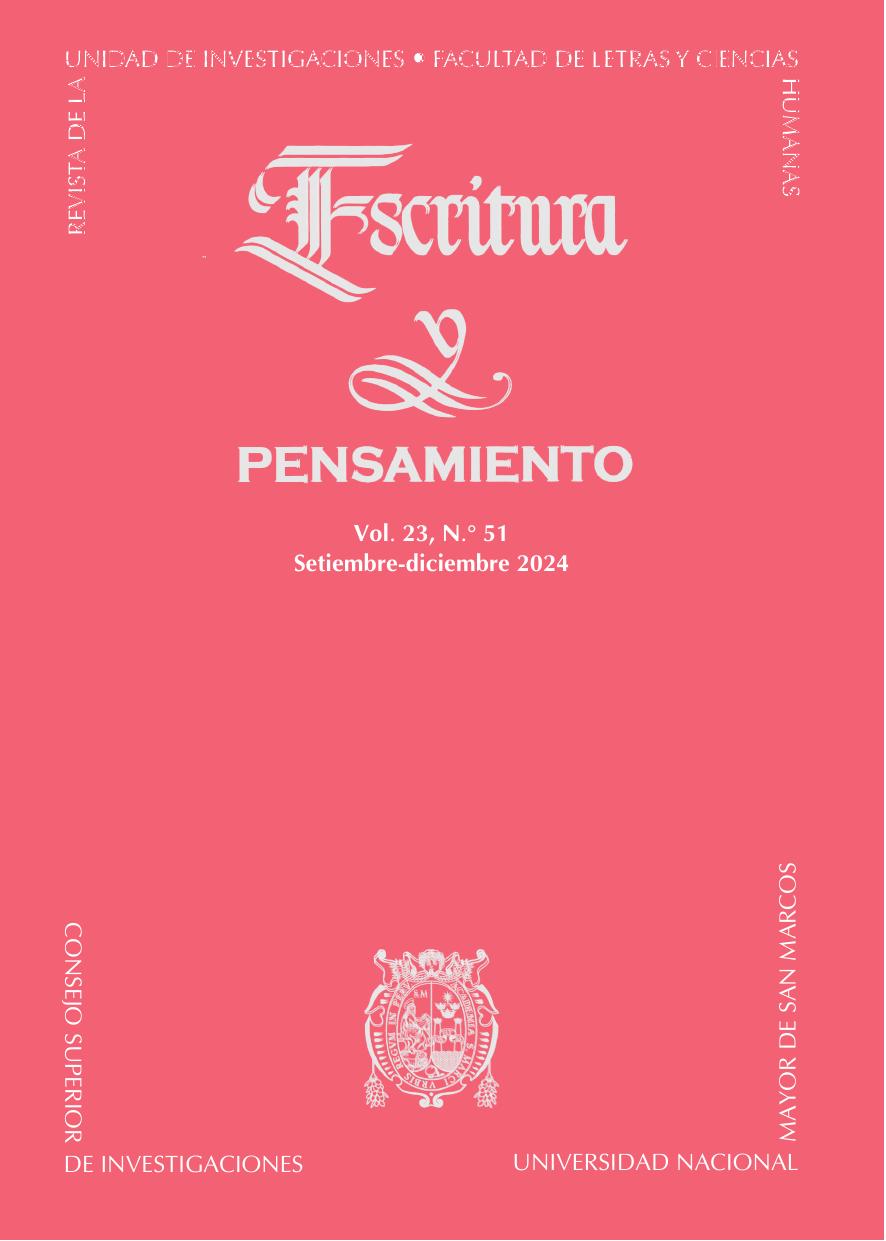Revisions to the ontological status of the mental in the XX century
DOI:
https://doi.org/10.15381/escrypensam.v23i51.26368Keywords:
philosophy of mind, Ontology, dualism, monism, materialismAbstract
During the 20th century, the treatment of the problem, derived first to behaviorism and later to functionalism as its preponderant currents. Usually, it was believed that the problem of the relation of the mind with the body; or rather, mind - brain, would eventually find a solution in computational systems. Thus, all the different positions point towards a monism, but without settling the discussion, since it does not seem possible to operate a reduction of the mental sphere to the material. In this article we will re-evaluate the scope of the ontological as a result of Donald Davidson's anomalous materialist proposal, for whom it is possible to operate a reduction in which the construction of nomological statements is not necessary to speak scientifically of the mental sphere; in addition to elucidating its implications to develop a defense against the accusation of determinism that falls on materialisms or monisms.
References
Bartra, R. (2007). Antropología del Cerebro. La conciencia y los sistemas simbólicos. Fondo de Cultura Económica.
Bennett, M. et al. (2008) La naturaleza de la conciencia. Cerebro, mente y lenguaje. Paidós.
Bergson, H. (2013). Materia y memoria. Ensayo sobre la relación del cuerpo con el espíritu. Cactus.
Broncano, F (ed.) (2007) La mente humana. Trotta.
Bunge, M. (2012). Ontología II. Gedisa.
Bunge, M. (2002). El problema mente-cerebro. Tecnos.
Churchland, P. (1999). Materia y Conciencia. Gedisa.
Crick, F. (2003). La búsqueda científica del alma. Debate.
Crane, T, (2008) La mente mecánica. Introducción filosófica a mentes, máquinas y representación mental. Fondo de Cultura Económica.
Cuéllar, L. (1988, noviembre-diciembre) El problema de la libertad y la responsabilidad moral en la máquina. Ponencia presentada en el III Congreso Nacional de Filosofía, Trujillo.
Cuéllar, L. (2016). La esencia de la conciencia cognoscente entendida aristotélicamente como el lugar de las formas. Universidad de Ciencias y Humanidades.
Damasio, A. (2007). En busca de Spinoza. Neurobiología de la emoción y los sentimientos. Crítica.
Davidson, D. (1981). Sucesos mentales. Universidad Nacional Autó- noma de México.
Descartes, R. (2010). Meditaciones acerca de la Filosofía Primera. Seguidas de las objeciones y respuestas. Universidad Nacional de Colombia.
Edelman, G. y Tononi, G. (2000). A universe of conciusness. How matter becomes imagination. Basic Books.
Engels, F. (1961). Dialéctica de la Naturaleza. Grijalbo.
Engels, F. (s. f.). El anti – Dühring. Homo Sapiens.
Farrington, B. (1980) Ciencia y filosofía en la antigüedad. Ariel.
Hierro-Pescador, J. (2005). Filosofía de la mente y de la Ciencia cognitiva. Akal.
Llinás, R. (2002). El cerebro y el mito del yo. Norma.
Rabossi, E. (comp.) (1995). Filosofía de la Mente y Ciencia Cognitiva. Paidós.
Ross, A., et al. (1970). Mentes y máquinas. Universidad Nacional Autónoma de México.
Ross, A., et al. (1980). Controversia sobre mentes y máquinas. Tusquets
Ryle, G. (2005). El concepto de lo mental. Paidós
Sánchez, F. (1977). Que nada se sabe. Aguilar.
Spinoza, B. (2000). Ética demostrada según el orden geométrico. Trotta.
Tononi, G. (2012). Phi: a voyage from the brain to the soul. Pantheon Books
Tegmark, M. (2014, April). Consciousness as a state of matter. New Scientist, pp. 28 -31.
Vanzago, L. (2011). Breve historia del alma. Fondo de Cultura Económica.
Villoro, L. (1992). El pensamiento moderno. Fondo de Cultura Económica.
Wittgenstein, L. (2009). Tractatus Logico-Philosophicus. Investigaciones Filosóficas. Sobre la certeza. Gredos.
Downloads
Published
Issue
Section
License
Copyright (c) 2024 Carlos Enrique Rojas Camacho

This work is licensed under a Creative Commons Attribution 4.0 International License.
AUTHORS RETAIN THEIR RIGHTS:
a. The authors retain their trademark and patent rights, and also over any process or procedure described in the article.
b. The authors retain the right to share, copy, distribute, execute and publicly communicate the article published in the Escritura y Pensamiento (for example, place it in an institutional repository or publish as part a book), with acknowledgment of its initial publication by Escritura y Pensamiento.
c. Authors retain the right to make a subsequent publication of their work, to use the article or any part of it (for example: a compilation of their work, lecture notes, thesis, or for a book), provided that they indicate the source of publication (authors of the work, journal, volume, number and date).





